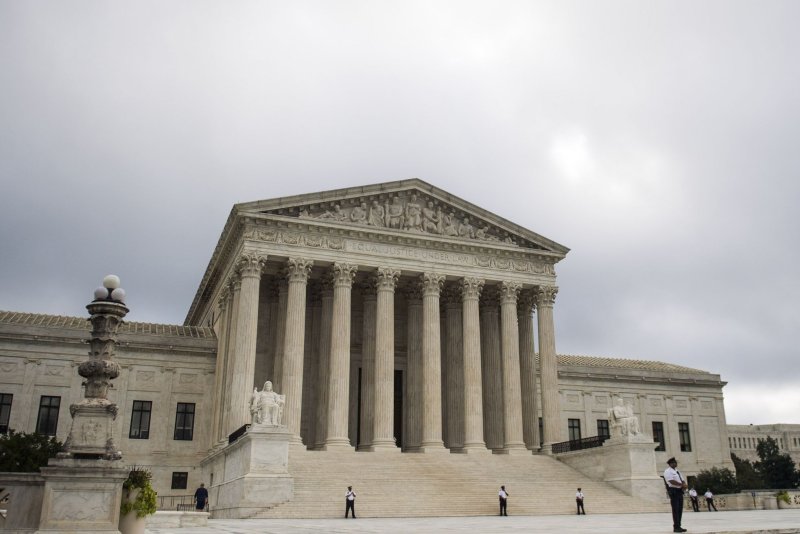The Supreme Court returned Monday to a slate of cases to review. File Photo by Kevin Dietsch/UPI |
License Photo
May 13 (UPI) -- The U.S. Supreme Court returned to the bench Monday to weigh a slate of cases, including the government's push to add a question about citizenship to the 2020 Census.
In one of its first rulings of the day, justices allowed a class-action suit against Apple to move forward in a 5-4 decision. The suit accuses the tech giant of having a monopoly on apps. Consumer groups want to bring an antitrust suit against Apple for imposing a 30 percent fee on purchases made in the app store.
The high court cited the Illinois Brick precedent, in which indirect purchasers two or more steps removed from the original antitrust violator cannot sue.
"The plaintiffs purchased apps directly from Apple and therefore are direct purchasers under Illinois Brick," Justice Brett Kavanagh wrote in his opinion. "At this early pleadings stage of the litigation, we do not assess the merits of the plaintiffs' antitrust claims against Apple, nor do we consider any other defenses Apple might have. We merely hold that the Illinois Brick direct-purchaser rule does not bar these plaintiffs from suing Apple under the antitrust laws."
Kavanaugh was joined by Justices Ruth Bader Ginsburg, Stephen Breyer, Sonia Sotomayor and Elena Kagan.
Apple has cited a precedent from 1977 that states damages in antitrust cases only go to people who were actually harmed by anti-competitive behavior. Apple argues that app developers should be the only ones who can sue, not consumers.
Also Monday, the court declined to take up an emergency appeal from an Alabama death row inmate seeking to be executed by gas rather than lethal injection. His execution has been delayed multiple times but is now set for May 30.
The Supreme Court has several other significant cases to consider -- including the Commerce Department's plan to ask about citizenship during the 2020 Census. The Trump administration argues the question reinforces the federal Voting Rights Act. Opponents say it an attempt to target undocumented migrants.
During oral arguments last month, several justices questioned the administration's facts and said the question was improperly added to the census. Critics have challenged the need for a citizenship status question, saying it would likely result in an inaccurate count -- as migrants and other non-citizens would decline to answer the question or even turn in the census form at all.
The United States hasn't inquired about citizenship on any census since 1950.
The high court is expected to expedite its ruling on the issue, because the Commerce Department must start printing census materials next month.
The court will also hear arguments on gerrymandering in North Carolina and Maryland. Democrats in North Carolina argue that Republicans drew a state congressional district in favor of the GOP, and Republicans in Maryland make a similar accusation about a district that was redrawn to eliminate a GOP congressional seat. Justices will also rule on a Maryland World War I monument in the form of a cross. Critics say the 40-foot-tall cross is a religious symbol and is inappropriate for state government property.















